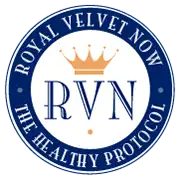Telomeres, Cellular Aging, and How to Naturally Support Longevity
Introduction
Aging is one of life’s few guarantees, but how and how fast we age is influenced by more than just time. At the heart of the aging process are telomeres—the protective “caps” at the ends of our chromosomes. When telomeres shorten, our cells lose the ability to divide properly, accelerating aging and increasing the risk of chronic disease.
The exciting news? Growing research shows that lifestyle choices, nutrition, and even certain supplements may help protect telomeres and slow cellular aging. Here’s what the latest science tells us.
What Are Telomeres?
Telomeres are repeating DNA sequences at the ends of our chromosomes. They act like the plastic tips on shoelaces, keeping our genetic material from unraveling. Each time a cell divides, telomeres shorten slightly.
-
Healthy, longer telomeres → Better cell repair, slower aging.
-
Critically short telomeres → Cells enter “senescence” (biological retirement) or die off, leading to tissue decline.
This process makes telomere length one of the best biological markers of aging.
Telomeres and the Science of Aging
Scientists now consider telomere attrition a key “hallmark of aging.” Shorter telomeres have been linked to:
-
Reduced immune function
-
Increased inflammation
-
Higher risk of chronic diseases (heart disease, diabetes, cancer)
-
Accelerated visible aging
While genetics play a role, research shows that environmental and lifestyle factors account for as much as 70% of telomere length variation—meaning your daily habits make a big difference.
Lifestyle Choices That Protect Telomeres
Nutrition & Diet
-
Plant-rich diets (fruits, vegetables, nuts, whole grains) are associated with longer telomeres.
-
Omega-3 fatty acids (from fish, flaxseed, chia) support cell membranes and telomere stability.
-
Polyphenols (found in green tea, berries, and olive oil) may reduce oxidative stress, a driver of telomere damage.
Exercise
-
Regular aerobic exercise helps preserve telomere length.
-
Strength training has been shown in recent studies (2025) to reduce biological aging markers, improving telomere health.
Stress Management
-
Chronic stress accelerates telomere shortening.
-
Practices like mindfulness, meditation, deep breathing, and yoga are proven to help preserve telomere integrity.
Vitamin D & Micronutrients
-
A 2025 Harvard study found that consistent Vitamin D supplementation slowed telomere shortening over a four-year period.
-
Adequate zinc, magnesium, and antioxidants also play roles in cellular longevity.
Social Well-Being
-
Positive relationships, community, and purpose in life are linked with longer telomeres. Your mindset truly shapes your biology.
Telomerase: The Enzyme That Rebuilds Telomeres
Telomerase is a special enzyme that can add DNA back to telomeres, essentially rebuilding them. In most adult cells, telomerase activity is very low—but in stem cells, it’s what helps maintain regenerative capacity.
-
The upside: Supporting healthy telomerase activity may help cells function longer.
-
The caution: Overactive telomerase has been linked to cancer, since it allows damaged cells to keep dividing. Balance is key.
Supplements and Telomere Support
Some natural compounds have been studied for their effects on telomere length and cellular aging:
-
Astragalus-derived compounds (such as cycloastragenol) show promise in stimulating telomerase activity, though research is still early.
-
Antioxidant-rich supplements (vitamin C, vitamin E, green tea extract) may reduce oxidative damage to telomeres.
-
Deer Antler Velvet contains IGF-1, growth factors, amino acids, and antioxidants that support cellular repair and whole-body vitality—making it a natural complement to telomere health.
Note: Supplements should be seen as supportive, not a replacement for a healthy lifestyle.
Risks and Considerations
While telomere science is exciting, there are important caveats:
-
Artificially pushing telomerase too high may encourage cancerous cells to survive.
-
Supplement claims vary in quality—look for brands with research-backed formulas.
-
Lifestyle changes (nutrition, exercise, stress reduction) remain the safest and most proven ways to protect telomeres.
Frequently Asked Questions (FAQ)
Q: What can I do daily to protect my telomeres?
Focus on a nutrient-rich diet, regular exercise, stress reduction, Vitamin D, and maintaining positive relationships.
Q: Are there supplements that lengthen telomeres?
Some natural compounds (like astragalus extracts and antioxidants) show promise, but more research is needed. Deer antler velvet provides growth factors and nutrients that may support telomere health indirectly.
Q: Is activating telomerase safe?
In moderation, supporting telomerase may promote healthy aging—but overstimulation could increase cancer risk. It’s best approached cautiously and in combination with lifestyle strategies.
Conclusion: Protecting Longevity from the Inside Out
Telomeres act as a cellular “clock,” influencing how fast we age and how well we stay healthy. While genetics play a role, lifestyle choices have profound power over telomere health.
By prioritizing nutrient-rich foods, exercise, stress management, vitamin support, and natural supplements like Royal Velvet Deer Antler Velvet, you give your cells the best chance to stay youthful, resilient, and vital.
👉 Learn more about how Royal Velvet supports longevity here: Royal Velvet Deer Antler Spray

